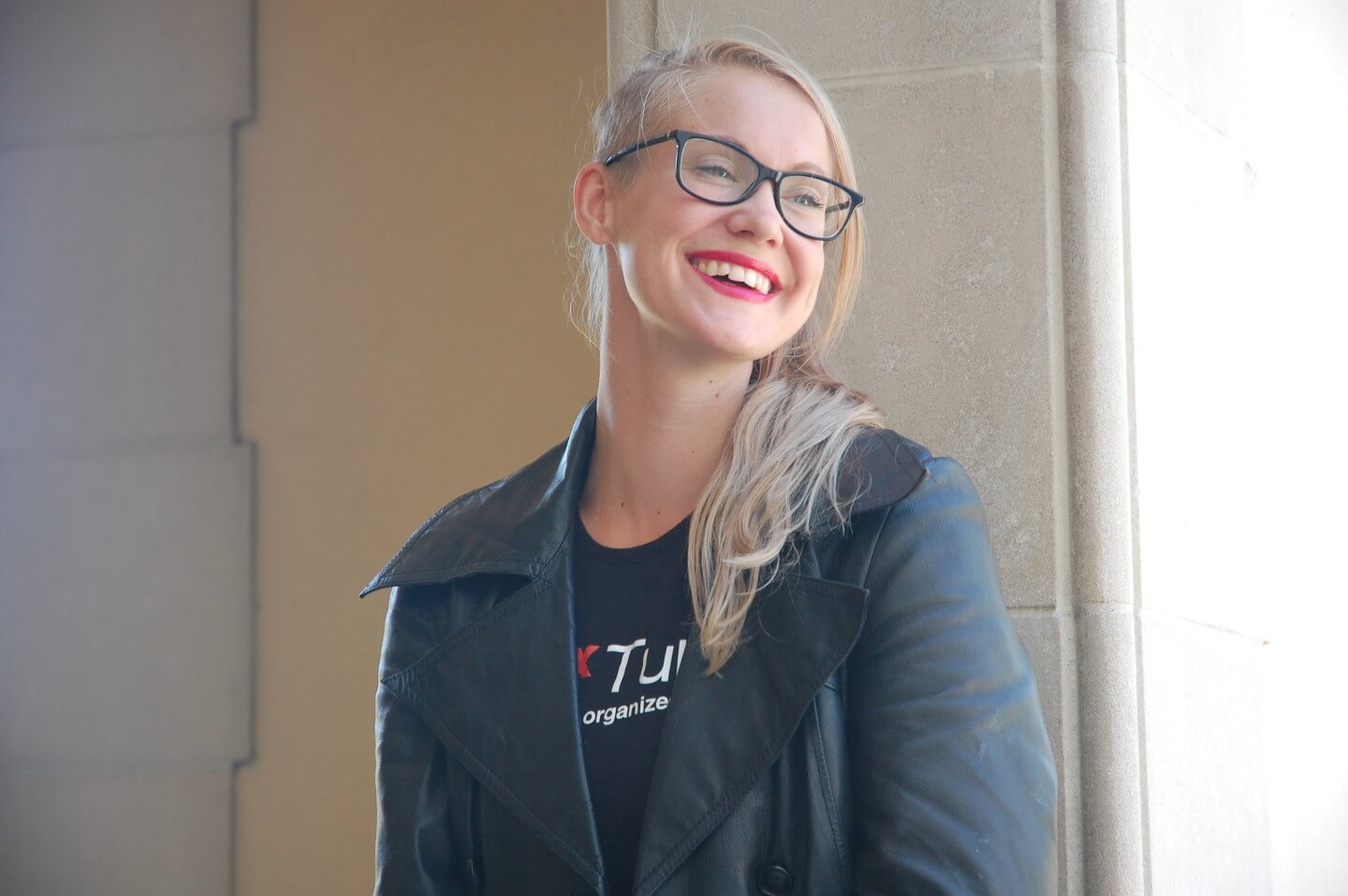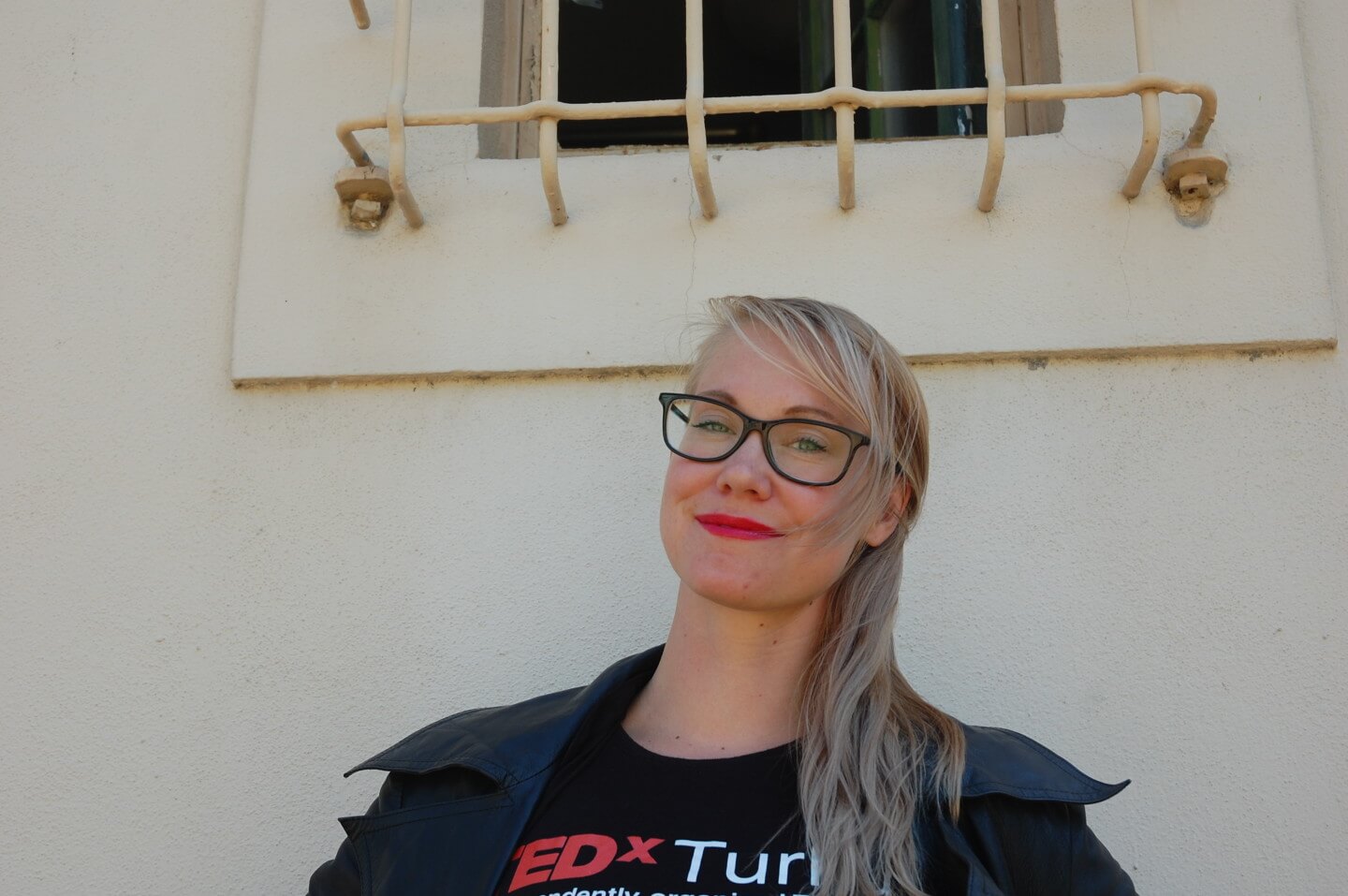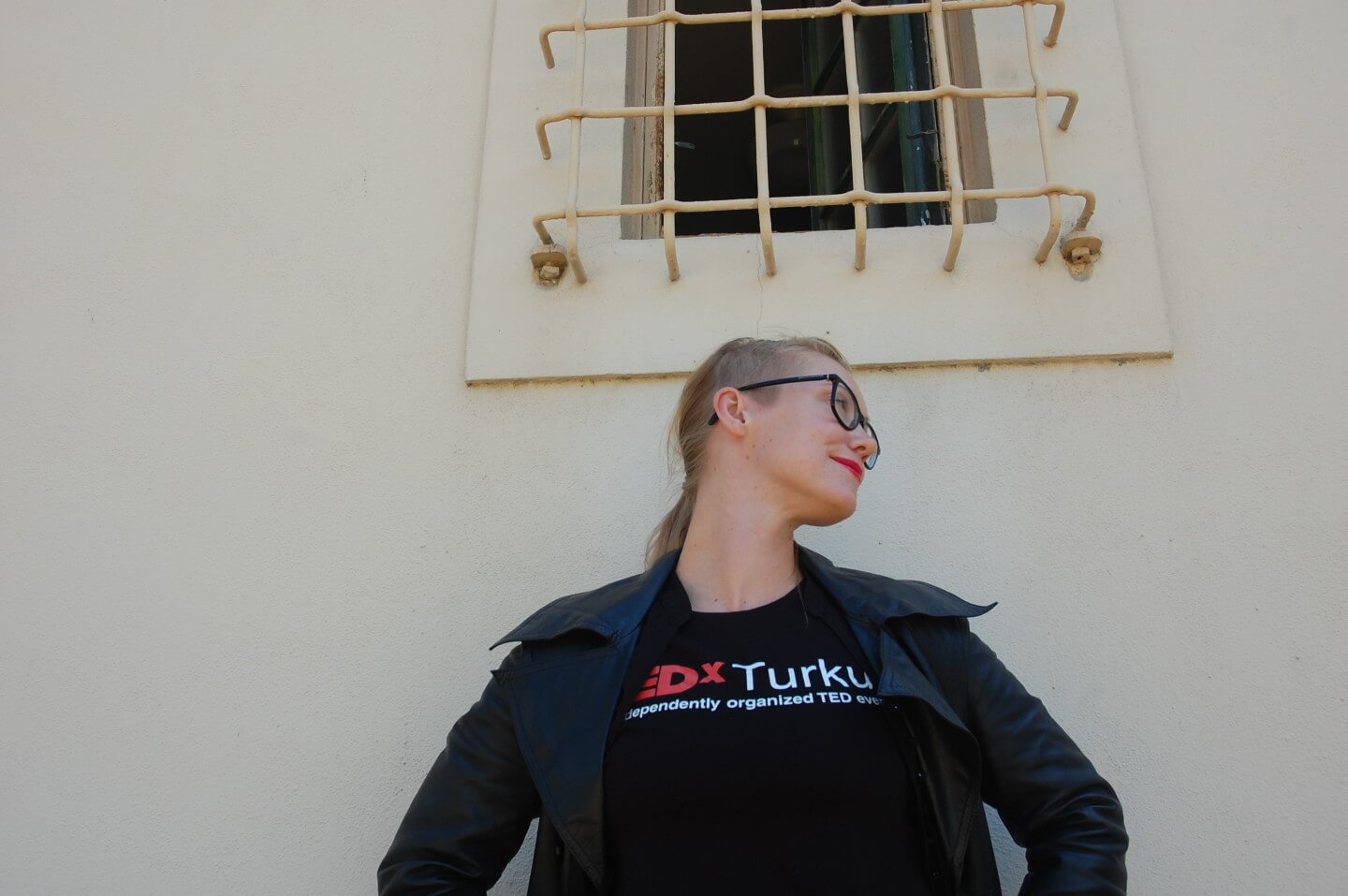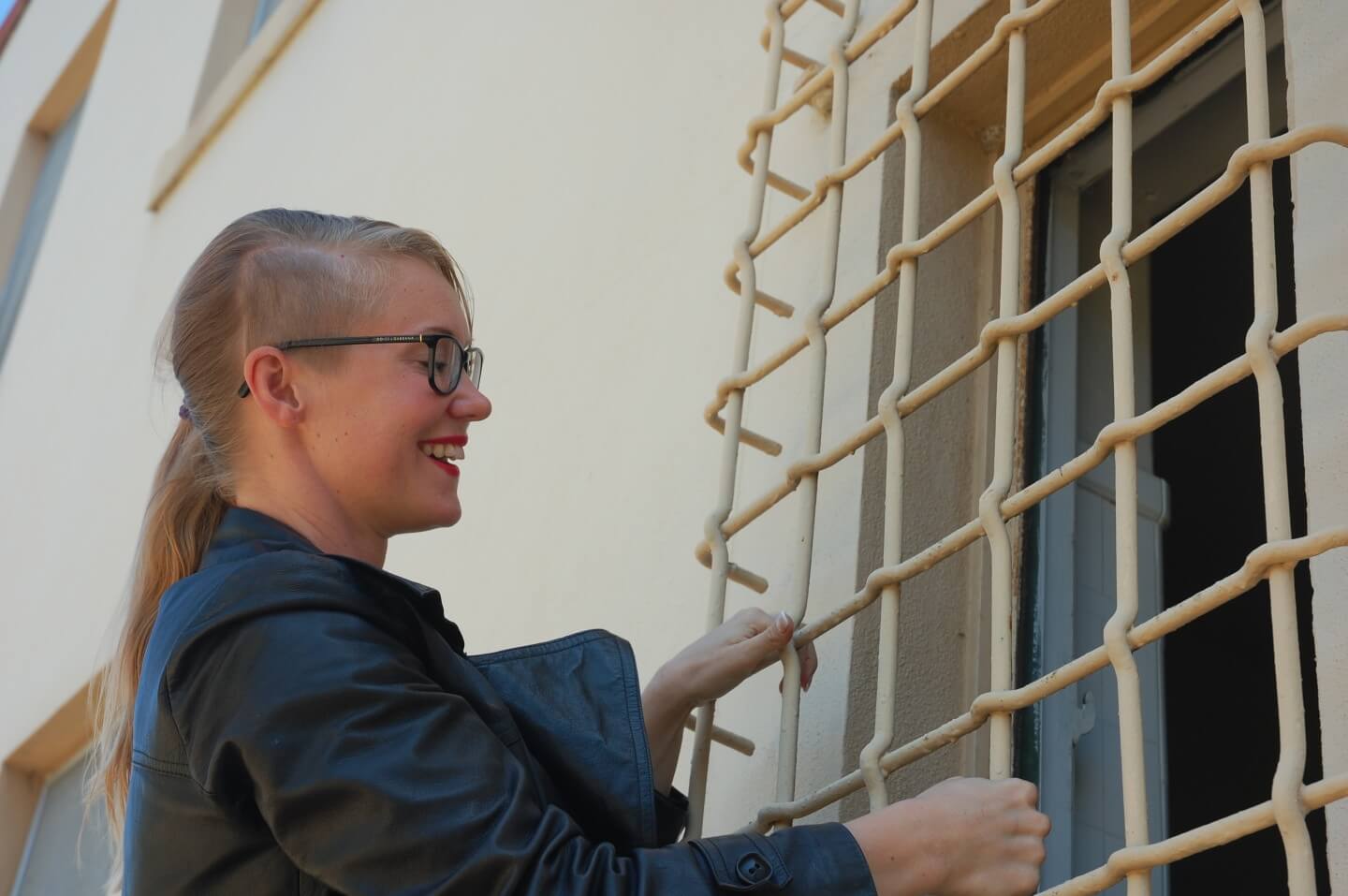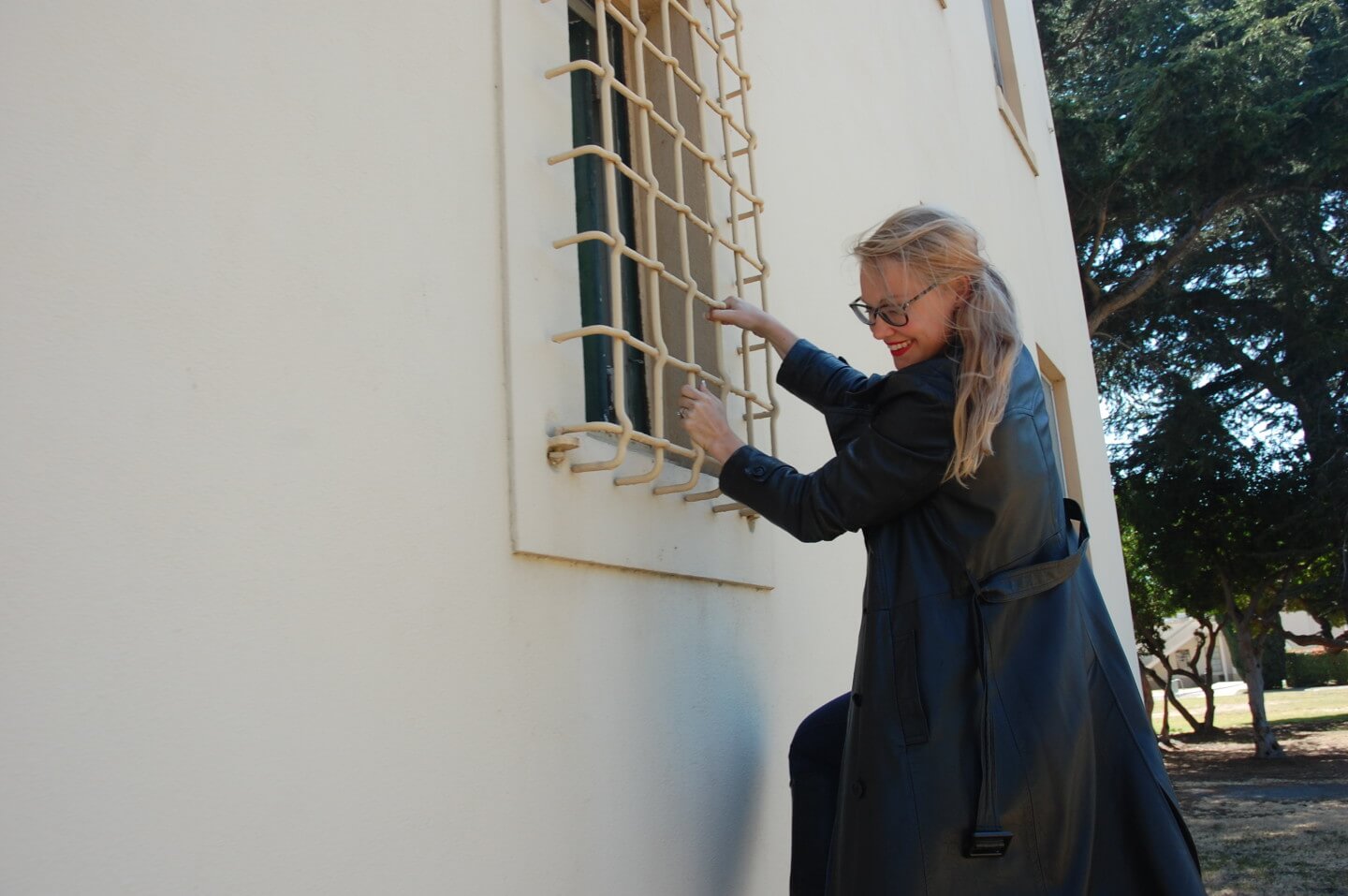Emilia Lahti: M.Sc., MAPP (Master of Applied Positive Psychology), Entrepreneur
Graduate Studies Program 2015 Graduate
Finland and the US
When faced with extreme adversity, why do some people persevere and grow from the challenge, while others call it quits and never make it to the other end of the tunnel?
“That’s the sisu thing. It has the potential to elevate you to your best self. And so it’s not that despite adversity we become something, but often because of it.” –Emilia Lahti
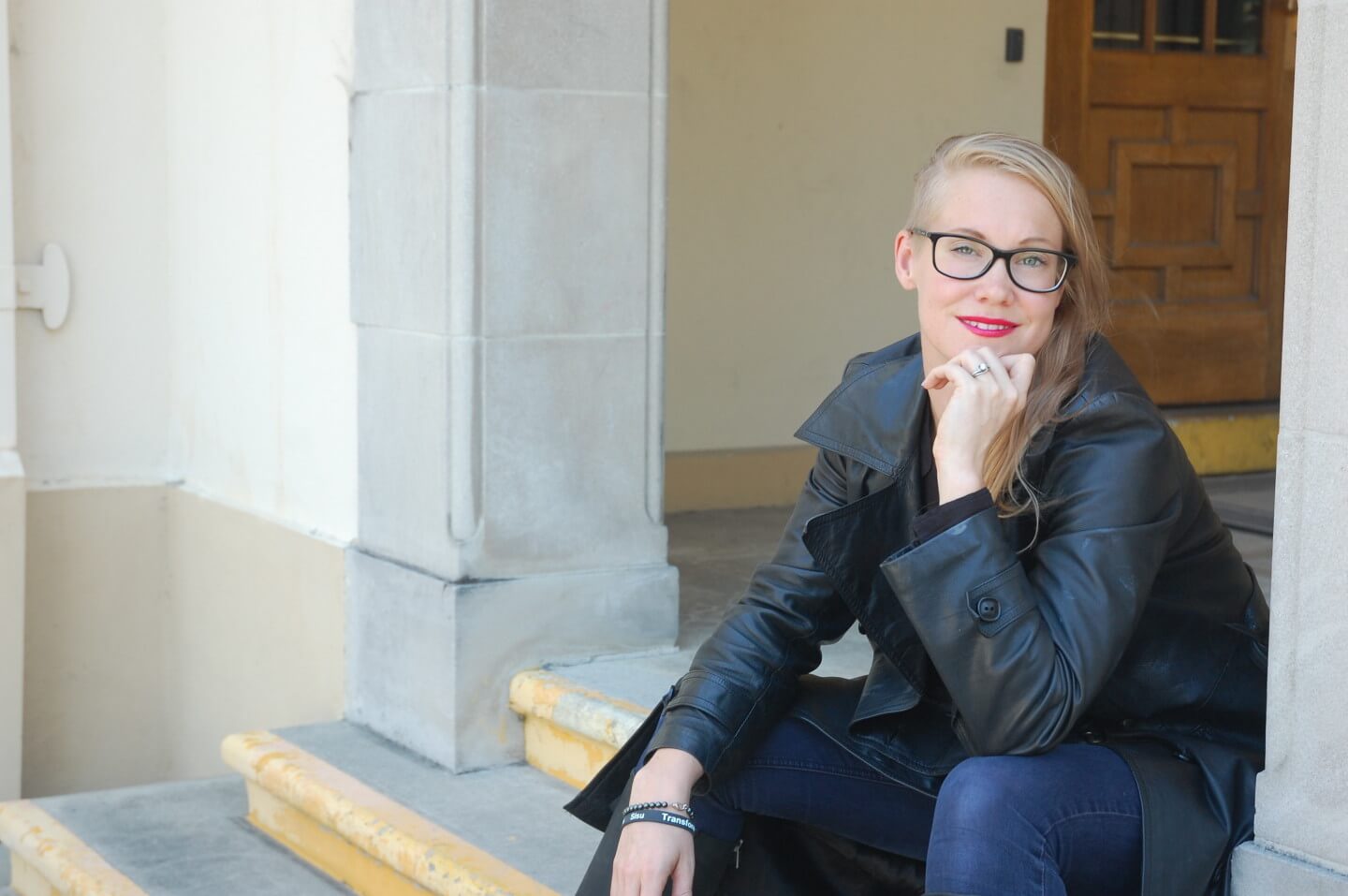
Over the past few years, Emilia Lahti has been dedicated to researching the Finnish word sisu—a word embedded in the country’s culture, yet lacking a clear translation. In English, it is often translated as “perseverance” or “maintaining determination through challenging times,” though these interpretations fail to paint the profundity of sisu.
Emilia holds a master’s degree in applied positive psychology from the University of Pennsylvania and is currently pursuing a PhD at the Aalto University School of Science and Technology in Helsinki, where her dissertation focuses on sisu as a psychological capacity.
Beyond academics, however, uncovering the full meaning of sisu has also been a personal journey for Emilia. “Research is often, in fact, me-search,” she says.
When investigating how humans triumph against all odds, it’s only appropriate that the investigator has accomplished this very thing. For Emilia, that is undeniably the case.
“Educating the mind without educating the heart is no education at all.” –Aristotle
Alison: You start your TEDx talk by saying, “Research is often, in fact, me-search. We tend to get interested in the things which have some personal significance for us.” How has this idea played a role in your work and life?
Emilia: A lot of my work revolves around understanding how humans endure extreme adversity, what enables us to strive through this, and what enables growth. Sometimes the things that happen to us, the good and the bad can be very transformative. There’s a lot of research on post-traumatic growth.
That happened to me five years ago. I was in an abusive relationship for a while and as a result of that, when it finally ended, I felt completely lost. But as a result of that time period, my eyes were opened to this horrible problem of domestic violence that is just everywhere.
And so the reason I wake up each morning is to find ways to help those who are still imprisoned, who are living in situations where they can’t reach their full potential, or who are suffering somehow. I’m excited about helping people heal, because I’ve been so lucky to have people who have helped me find my way back to this human whom I was meant to be.
Sisu simply translated is this indomitable determination when we’re facing extremely hard, difficult situations in our life.
Alison: In your work you examine deeply human themes like perseverance, resilience, and grit, but you say sisu is slightly different. There isn’t a direct translation of sisu, but in your own words, can you try to explain it?
Emilia: Sisu simply translated is this indomitable determination when we’re facing extremely hard, difficult situations in our life.
We’ve had this word for thousands of years, and when I started looking into it, I wasn’t able to find an answer to whether sisu was a character trait or a tendency. Is it something only Finns have? Or is it just a myth? And I thought, “We keep talking about it, but we don’t even know what we’re talking about.” That was one of the reasons I started researching sisu.
Every single human has a story to tell and there’s a moment when we have to reach beyond what we thought was physically or mentally possible. It’s like a second wind of our physical or mental endurance.
I love this idea of pushing beyond because all the advancements of the modern society are based on our ability to reach further, explore, and go into the unknown.
Alison: How do you think this relates to the struggles and triumphs of entrepreneurship?
Emilia: I think sisu is extremely relevant to entrepreneurs because it’s all about seeing something that is not yet there—seeing into the future, or seeing around the next corner, and trusting that there is something out there. In a more philosophical sense, at its deepest level sisu is about awakening potential.
It is about seeing into what we might be, into the dream, beyond what Aristotle describes as our ‘actual reality’, as opposed to ‘potential’ reality, and its limitations. Instead of stopping where we feel our abilities end, we push through the barrier. This barrier might be fear, uncertainty, physical pain or lack of trust in oneself, among many other such limits. As we step past this boundary, we redefine it as a frontier—what could have been the end has become the beginning.
I love this idea of pushing beyond because all the advancements of the modern society are based on our ability to reach further, explore, and go into the unknown.
Alison: Having a master’s in applied positive psychology from the University of Pennsylvania, how does positive psychology influence your thinking here in the world of emerging technology?
Emilia: Positive psychology and exponential technology; they’re totally aligned. I see Ray Kurzweil as the tech world equivalent of Marty Seligman, the founder of the field of positive psychology. They’re both these mavericks, thinking about our future, flourishing, and the upward spiral.
Positive psychology approaches life by looking at what’s good, and what we can take to amplify ourselves, instead of focusing on what’s broken in systems, in relationships, or in humans.
It makes a huge difference with how you see the world. Do I see it through this negative lens that people are out to get me? Or do I see that people are good-willing? Do I assume the best?
Technology is not a miracle drug. It’s not going to just go and fix everything if we are corrupted in our minds and in our hearts.
Alison: You talk a lot about the idea of the power of collective conversation. At Singularity University, where is it most important for that collective conversation to be had, especially in terms of the powerful new technology entering our world?
Emilia: Kentaro Toyama used to speak about the idea that technology amplifies what’s already out there. I’m very interested in finding ways to cultivate virtues such as compassion and kindness—all the things that actually help us relate to each other. Then exponential technology can meet this fertile ground, and the results will be more beneficial for humankind. Technology is not a miracle drug. It’s not going to just go and fix everything if we are corrupted in our minds and in our hearts.
One of my favorite quotes is from Aristotle, “Educating the mind without educating the heart is no education at all.”
Alison: I love this idea of how technology amplifies what’s already there.
Emilia: It really stuck with me—that one sentence. Technology can help to bring more people into this global conversation, but we need to also talk about the quality of that connection. How are we using the technology to facilitate connection? Is it something that can help empower people’s voices? That is something we have to decide. We have to create the infrastructure—it’s not going to happen just by itself.
And this is part of the global consciousness discussion. It’s definitely a global challenge—how to make people be more aware.
We have this massive power to open doors for each other, but also, to close them. So let’s make sure that our behavior, when we encounter people, is the kind that opens doors and elevates people.
Alison: If you look back at your life up to this point and headline three different stories within the story of your life, what headlines come to mind?
Emilia: I would say one might be…“Who Knew?”
I think it is so important to keep that in mind—when you are going through tough times, you never know what’s around the next corner or will be there when you wake up the next day. We just have to keep going. Another is “The People.” Surrounding ourselves with people who create that safe space for us to be who we are.
Alison: What an amazing idea—”Who knew?”
Emilia: This rad pop-singer Pink said in one interview that, “When I’m completely happy, I’m totally useless.” I’m the kind of person that I need to have the struggle. I need to have some crazy goal. I guess it’s the so-called entrepreneurship gene.
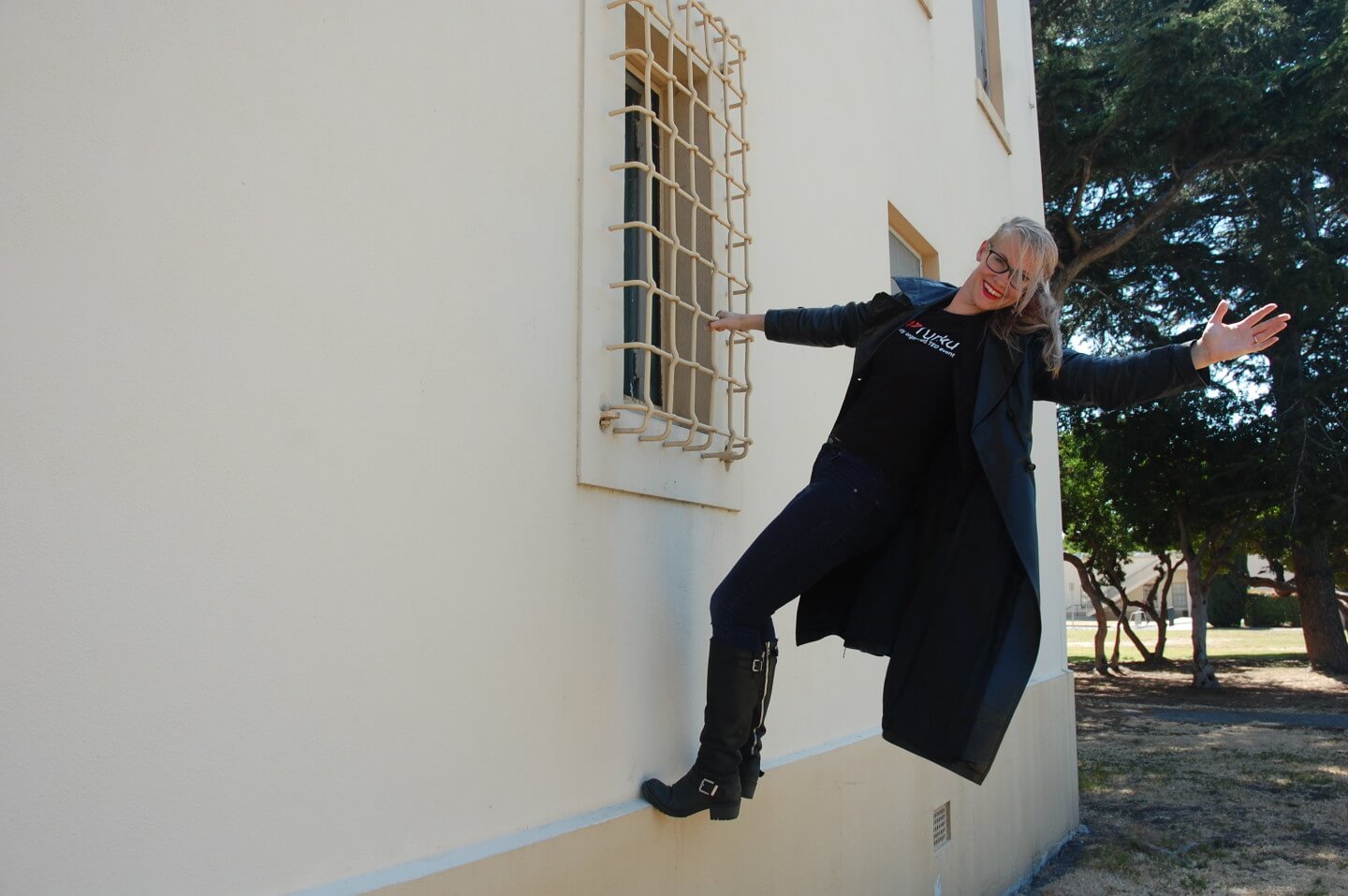
Alison: Final question, I heard you once say, “We pass on knowledge through stories.” What do you want to pass on through yours?
Emilia: We have this massive power to open doors for each other, but also, to close them. So let’s make sure that our behavior, when we encounter people, is the kind that opens doors and elevates people. I think that’s the only way to really change the world for the better.
This interview has been edited and condensed
Do you believe in the power of altruism? Connect with me on twitter @DigitAlison or @SingularityHub, and tell me your thoughts.
You can follow the full series here or learn more about Singularity University’s Graduate Studies Program.
Photography shot by: Alison Berman
Subscribe to Exponential Thinkers weekly newsletter to receive each new story and additional curated content.



